Barolo Prapò Germano Ettore 2011
Barolo Prapò Germano Ettore 2011
GERMANO ETTORE
1856
four generations of men in love with their vineyard
Barolo hills, the family land area has gradually tripled over time, reaching today 10 hectares in Serralunga d’alba and 9 hectares in Cigliè located in the Alta Langa.
50s / 70’s
the happy intuition of ettore germano
My father Ettore Germano, who passes in 2005, was the founder of the brand, had the happy intuition to also thank my mother Rosanna who amplified the activity from the mere viticulture to the wine production. Growing up in the vineyard he developed a great sense to become a skillful grafter and feel the need to restore the vineyards in the 1960’s, with a selection of vines grafted by himself. Sparse bunches, small berries, with a crisp skin suited to produce wine quality and less sensitive to certain pests.
In 1964 Ettore then married Rosanna Porro, and together they continued to work the vineyards, buying some plots of land bordering the property, not ever to imagine that one day this hectare of Prapò inside the Cerretta hill, would then obtain a Geographical mention in 2009. A cru like that of the historical Cerretta. In 1975 the winery Ettore Germano was founded and the vinification and bottling became more consistent and the fist small trade of a few hectoliters was sold to private customers and friends.
2000
the growth of the winery in the heads of sergio germano
The first great change was in 1985.
Me, Sergio from the year of 1965 after finishing the school of enology in Alba, and after a few experiences in three important wineries in the area I continued to help out my father in his activity to help contribute to the conversion of the family farm to a full fledge winery. In 1988 the first 5,000 bottles between Barolo, Dolcetto, and Barbera, were then placed on the marked together with a small production of Chardonnay. However, the turning point came in 1993 when all the grapes produced were vilified and bottled. In 1995 in Serralunga about two hectares of Cerretta and we start with our challenge to produce white wines in Alta Langa, plantain the first vineyards of Chardonnay, Thenish Reisling in Cigliè.
In 1997 Sergio Germano marries Elena Bonnelli who has given a great support in the winery to help with the organization of the administrative work as well as the hospitality in the winery. The family then starts to grow with the joy of birth of two children: Elia born in 1998 and Maria born in 2001.
In the next few years we are able to purchase another hectare in the vineyards of Prapò, Lazzarito, and Pradone (a parcel of Lazzarito) and also another parcel in Cerretta. In 2010 my mother inherited from her cousin Tommaso Canale half of a hectare in the most historic and famous vineyard of Serralunga d’Alba Vigna Rionda.
BAROLO PRAPÒ
Exposure: South-East
Altitude: 330-370 m.s.l.m.
Soil structure: clay, limestone with veins of sand
Harvest period: the second half of October
Closure: Cork
Winemaking:
The grapes are hand harvested and transported in small baskets to the winery. Once the grapes arrive they are then de-stemmed and lightly crushed to undergo alcoholic fermentation in vertical steel tanks. The maceration will take place for about 40- 45 days with several pump overs happening daily, to encourage extraction of color and tannins. After racking and malo-lactic fermentation, the wine is then placed into botti grandi (large casks) of 2,000 – 2,500 liters, where it will then mature for 18 to 24 months. After this aging the wines will then be ready to be bottled. It will rest in bottle for another 12 months before being available to the market.
Tasting:
- Color: Garnet red with light orange reflections
- Nose: Intense fragrance of dried fruits, with notes of vanilla and underlying sweet red fruits, thanks to the sand that is present in the soil.
- Palate: A great balance of strength and elegance, a pleasant tannin that cleans the palate leaving a good finish of olfactory sensations.
- Pairings: The most interesting of combinations are to be found in particular with first and second courses of the Piedmontese traditional foods. Also great with aged cheeses and dried fruits to sip only in good company.
Contiene solfiti

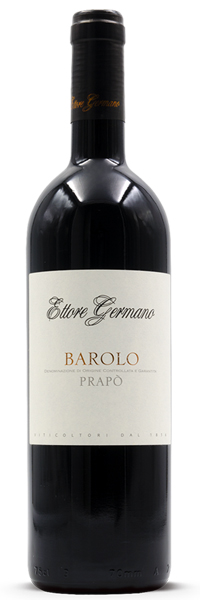
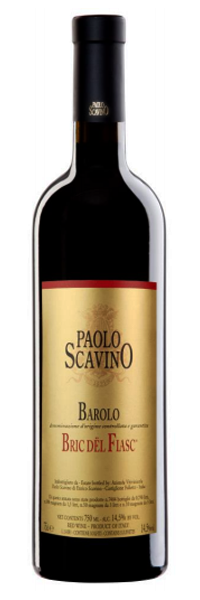
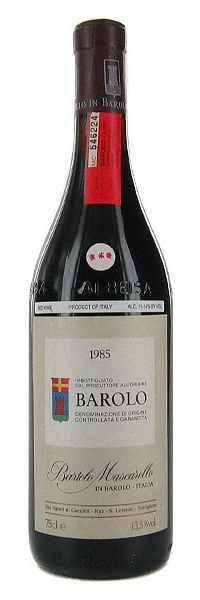
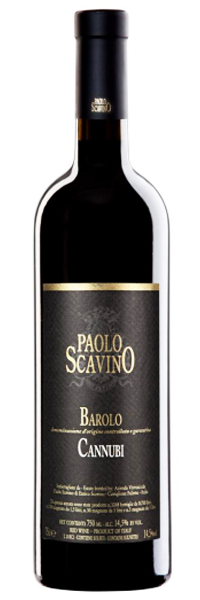
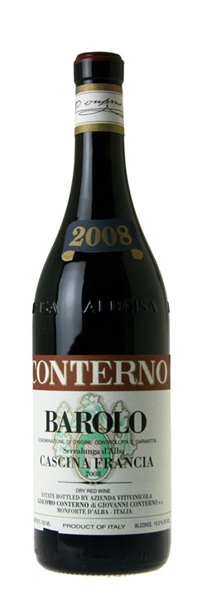
Reviews
There are no reviews yet.